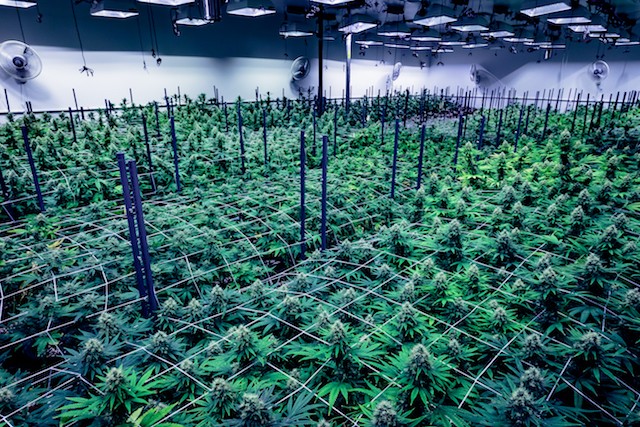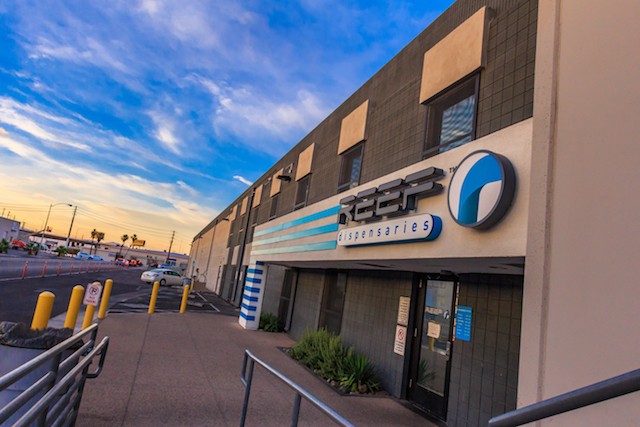Reef is creating footprints in the desert.
With two dispensary facilities in Las Vegas, two in Reno, Nevada, and three more in Arizona, Tryke Companies/Reef Dispensaries is taking a big bet on making the desert bloom. The main Nevada in Vegas alone comprises 165,000 square feet of space.
Wily survivors know in order to thrive in a harsh climate, water, arable growing space, energy are necessities. If you’re a smart desert dweller, you’ll figure out ways to renew those resources, knowing renewable resources make survival cheaper and easier.
“Historically, cannabis cultivations have been very inefficient and have left a large carbon footprint,” said Tryke/Reef Chief Executive Officer Matt Morgan. “At Tryke Companies/Reef Dispensaries, we’ve always gone to great lengths to make sure we have the least possible impact on the environment.”
“One of the things we’ve done is have half the rooms go on at midnight to noon, while the other half go from noon to midnight,” Morgan said. “What this does is help the grid not get surged by lighting up the whole building at once. This creates a more efficient power flow to the building, which creates more efficiency for the grid in general.”
In a city like Vegas, wattage is measured by bulbs in the millions and acres of air conditioning operating twenty-four/seven, every day of the year. Only a fraction of that is powered by nearby Hoover Dam.
But in order for life to exist, there has to be water—lots of water.
“Another thing we do is we recapture and recycle about 70 percent of the water we use for the plants. We re-run it through our filtration system and reuse that water in the cultivation facility,” Morgan explained.
Oh, and the desert isn’t getting any cooler. Recent record temperatures caused airline flights to be cancelled in Vegas and Phoenix. When it’s too hot for the buzzards and burros, cooling can be expensive, so efficient cooling becomes a high priority.
“As far as cooling, we built and installed a centralized chilling system,” Morgan said. “It’s about 35-percent more efficient than conventional air conditioners. It’s run using closed-loop, chilled water to cool everything, versus cooling the air with a closed air conditioning system.”
The company and its facilities continue to work toward better environmental standards, hoping to pioneer new practices and develop a compliance culture that benefits the community and, really, the whole world.
“As we grow and expand, we’re continuing to fine-tune the intricacies of this operation to discover how we can make it as efficient and environmentally-friendly as possible,” Morgan said.












